NDIS Plan Review Report: Strategies and Tips for Providers
Understanding a participant's NDIS Plan Reassessment doesn't have to be overwhelming. This guide simplifies the process, providing a step-by-step approach to supporting participants with their Reassessment Report.
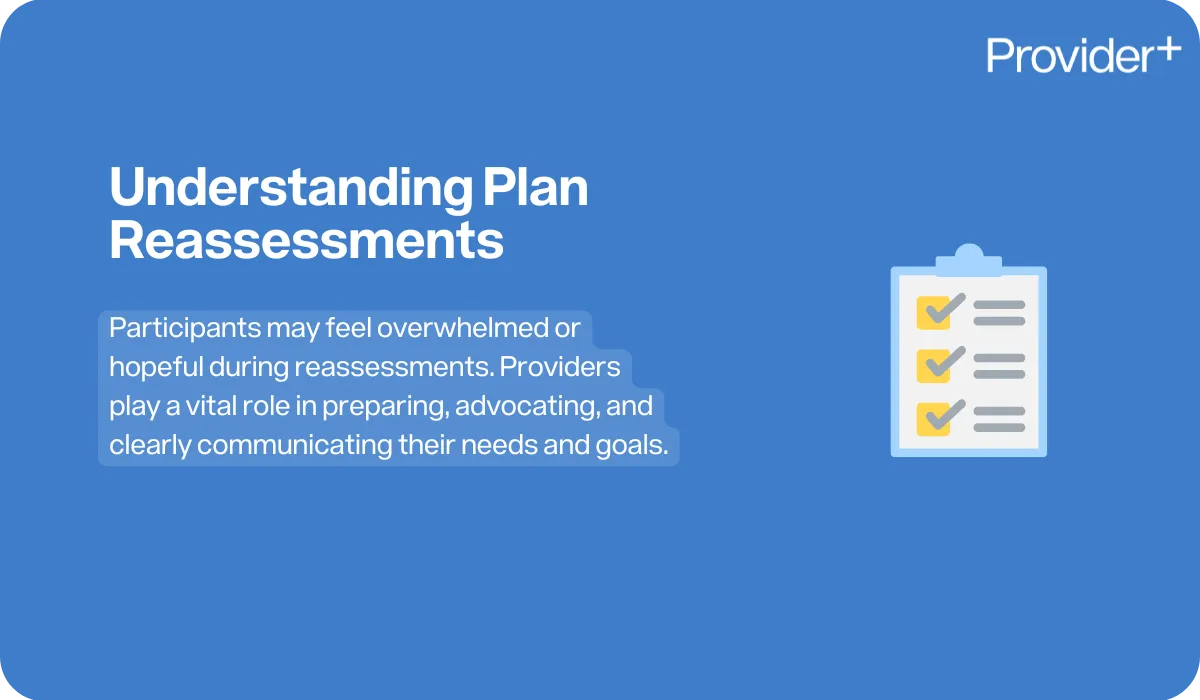
NDIS Plan Reassessment Report: Strategies and Tips for Providers
As a participant approaches their NDIS plan reassessment, they may feel a mix of emotions, including uncertainty, anxiety, or even hope. The process can feel overwhelming, especially when considering how to effectively communicate their needs, progress, and future goals. Participants may worry about changes to their funding or supports, while also feeling hopeful that the reassessment could provide new opportunities to better achieve their goals.
The reassessment process can be agency initiated, meaning that the NDIS will proactively reach out to participants when their plan is nearing its renewal date to discuss the reassessment process and necessary preparations.
Providers can play a crucial role in advocating for their participants during their plan reassessments by supporting participants, effective communication and collaboration and ensuring their needs and goals are accurately represented.
Tips on how to best support your participant at their plan reassessment meeting
An NDIS provider’s report for a participant’s plan reassessment should be comprehensive, detailed, and tailored to the participant’s individual goals and supports. Here’s what it should include:
A support coordinator can assist in gathering documentation and organizing support services, which is crucial for smooth interactions with the NDIS and ensuring all current providers are accounted for.
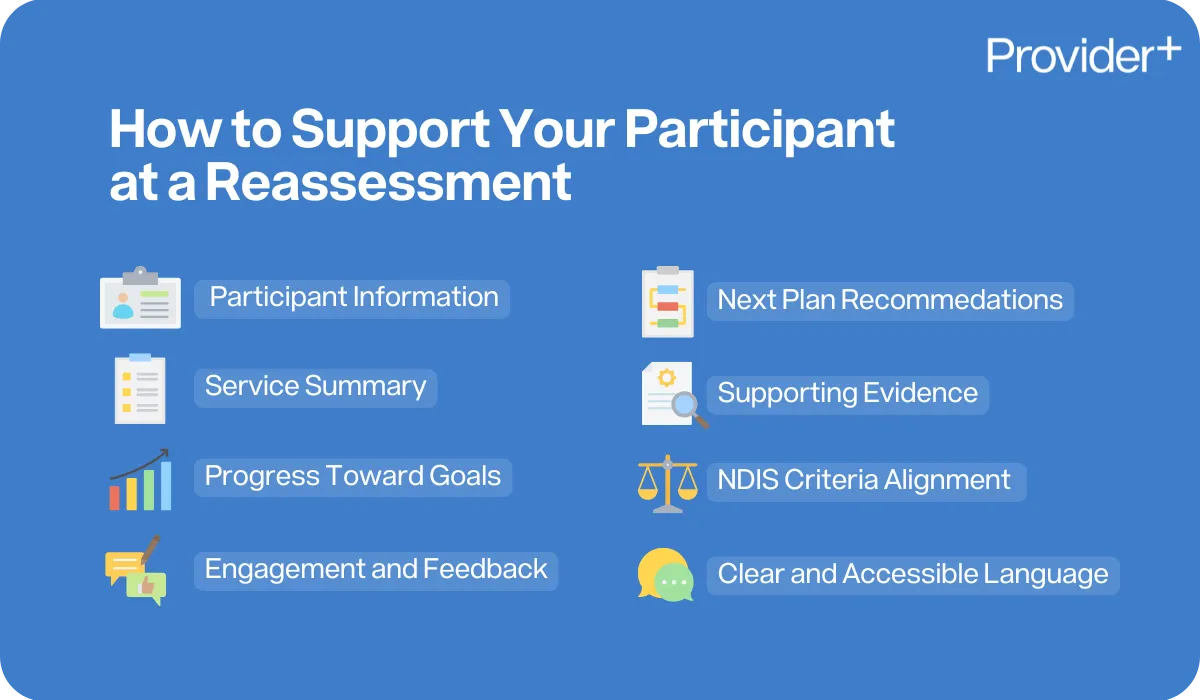
1. Participant Information
- Participant’s full name, NDIS number, and contact details.
- Provider’s name, contact details, and relationship to the participant.
2. Summary of Services Provided
- List of services delivered during the current plan period (e.g., therapy, support coordination, personal care).
- Frequency, duration, and types of supports provided.
- Alignment of services with the participant’s goals.
- Identification and listing of all types of support services used by the participant, including mainstream supports such as healthcare professionals, support workers, and educational providers.
3. Progress Toward Goals
- Outcomes achieved based on the participant’s goals as outlined in their plan, with a focus on measuring and reporting participant outcomes to ensure quality and effectiveness in service delivery.
- Examples of progress, improvements, or milestones (e.g., increased independence, skill development).
- Challenges faced in achieving goals and strategies implemented to overcome them.
- Ensure the participant’s goals are central to the reassessment process.
4. Participant's Engagement and Feedback
- Level of participant engagement and satisfaction with the supports provided.
- Feedback received from the participant or their carers about the services.
5. Recommendations for the Next Plan
- Justification for the continuation or adjustment of current supports.
- Recommendations for new or additional supports (e.g., assistive technology, therapy).
- Any changes in the participant’s needs, circumstances, or goals.
- Option to request a longer plan duration, specifically mentioning a timeframe of up to three years for individuals whose support needs are stable.
6. Evidence and Supporting Information
- Prepare Comprehensive Reports: Document progress, challenges, observations or insights and justify the need for ongoing or additional supports to help with the plan reassessment.
- Provide Evidence: Supply supporting assessments, data, feedback, professional opinions or specialist reports to substantiate progress and to strengthen the case for recommendations of reasonable and necessary supports. Collecting necessary supporting documentation can aid in the review process, particularly when significant changes occur in a participant's support needs.
7. Alignment with Reasonable and Necessary Criteria
- Clear explanation of how recommended supports meet the NDIS criteria for being reasonable and necessary (e.g., they assist with daily living, improve independence, or help achieve goals).
- Ensure supports are “approved” as per Schedule 1—Supports that are NDIS supports unless otherwise provided.
- Plan funding amounts can change over time as participants demonstrate greater social and economic participation. Regular reassessments are important to adjust goals and support accordingly.
8. Clear and Accessible Language
- Avoid jargon and use language that is easy for the participant, their family, and the NDIS planner to understand.
Providers play an essential role in supporting participants during plan reassessments by ensuring their needs, goals, and progress are accurately conveyed. By providing a clear, detailed, and participant-focused report, providers can help participants navigate the reassessment process with confidence. By advocating for appropriate supports and services, providers contribute to the participant securing appropriate funding and supports to help achieve their goals and to maintain their independence and their quality of life.
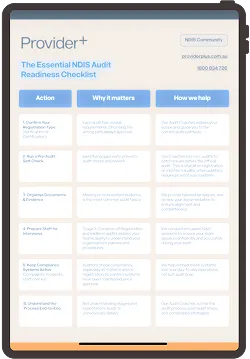
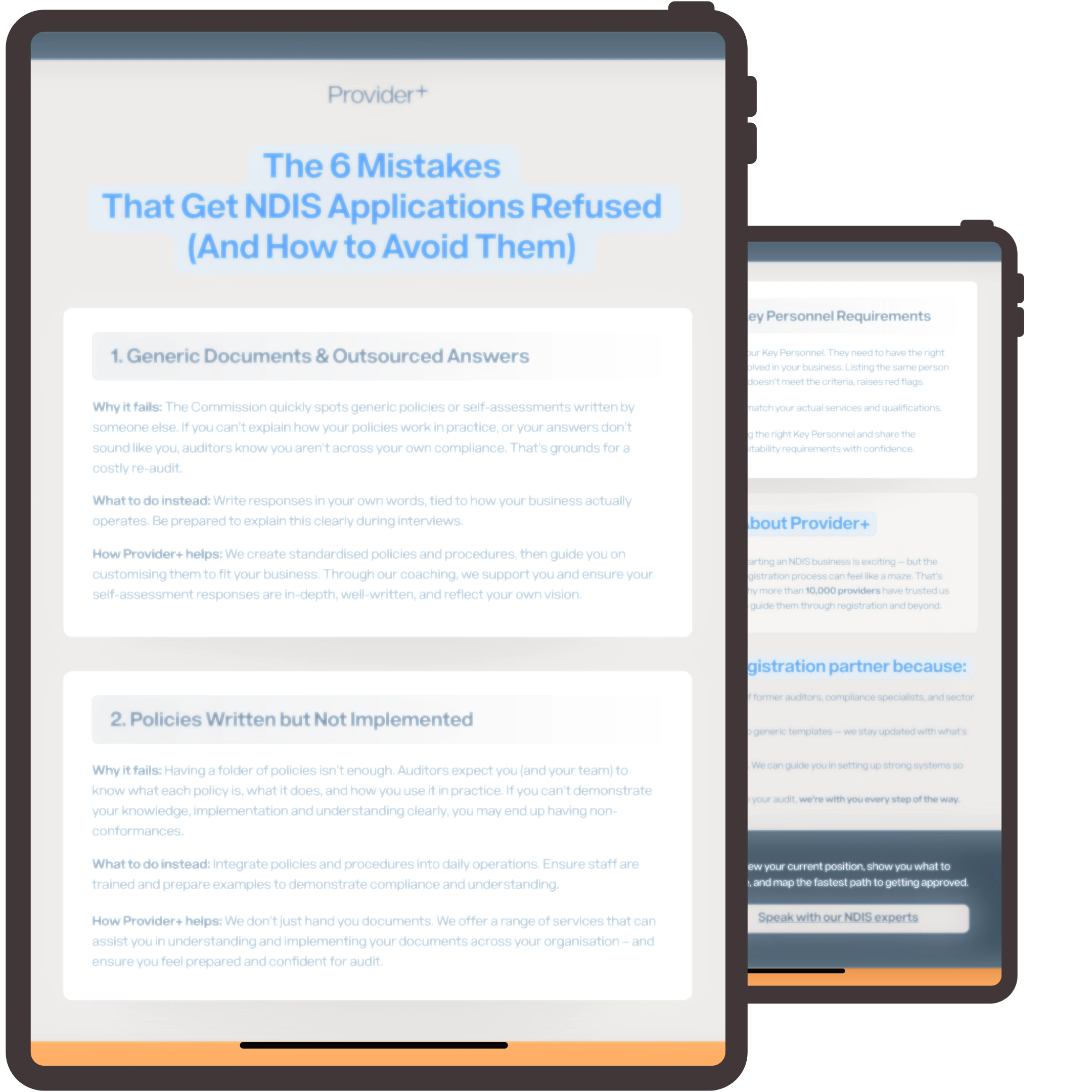
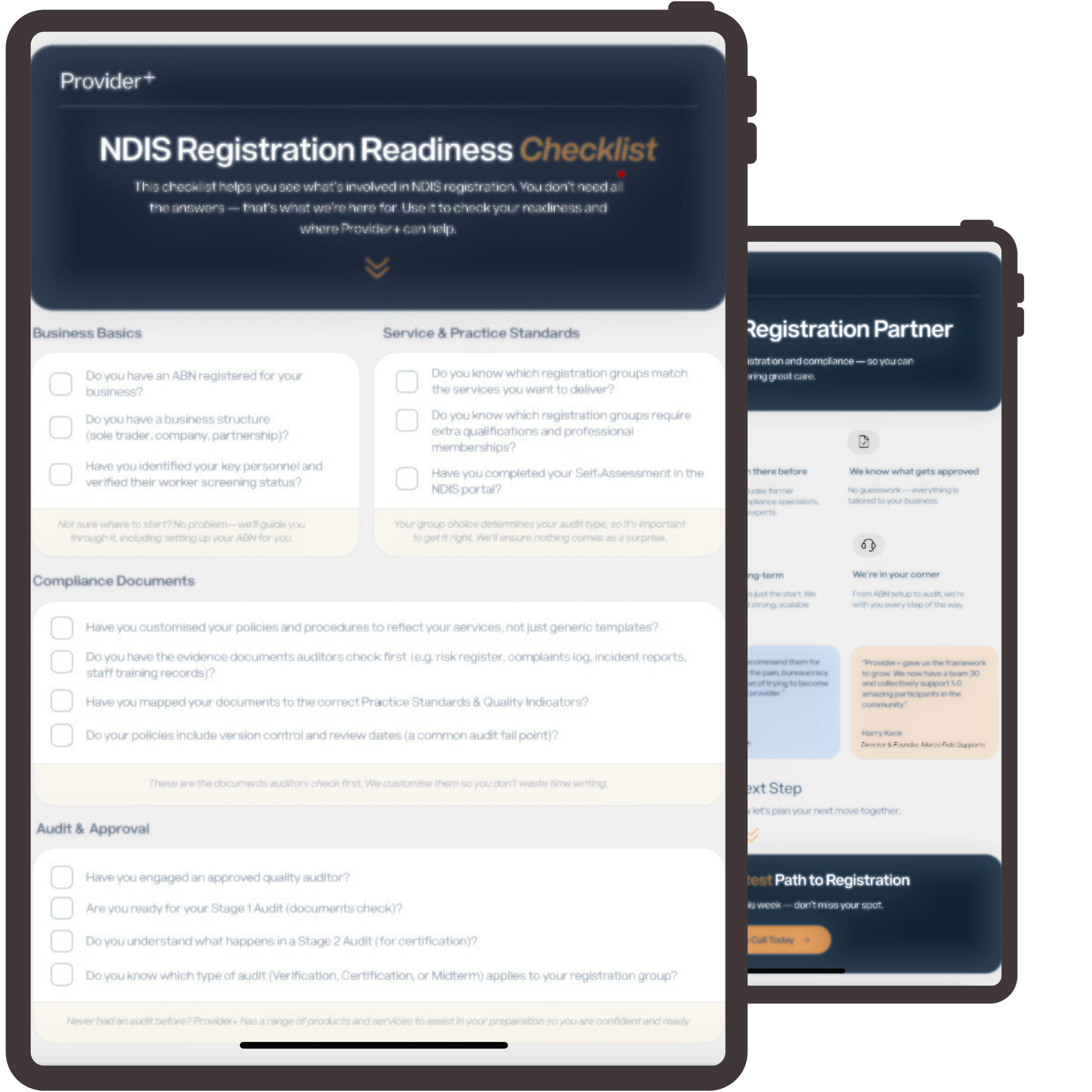

































FAQs
Here is our frequently asked questions.


